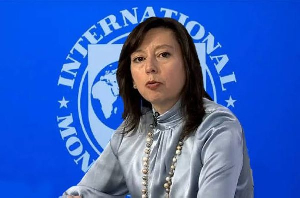No two individuals are the same, not even twins. We all have our own uniqueness.
How many times were you compared to your siblings whiles growing up?
How many times have you compared your child to their sibling?
Parents often compare siblings, which isn't always a bad thing.
We can evaluate our children's progress, compare their strengths and weaknesses, and look at the remarkable way that we are all so different.
It is acceptable to look at how tall a child was at one age versus the sibling.
But when the comparison starts to become filled with judgements and evaluations that make children feel superior or inferior to their sibling, we start to get into dangerous territory. When we judge one child for being an introvert and praise another for being an extrovert, then we are creating a psychological prison.
In pitching siblings against each other, we might overlook one child's sporting ability because we're too focused on the other's academic skills.
We forget to celebrate differences. We place our values on our children and expect them to live up to certain expectations, but these might not be reasonable or possible for our children.
Lasting Effects of sibling comparison
Children who are constantly told, "Why can't you be like your brother/sister?", are likely to end up basing their self-worth on how they compare with others.
It teaches them that life is about competition and comparison, and they will always feel that they can never be enough, because there's always someone better than they are.
2. It undermines sense of worth, it reduces motivation, it increases anxiety, and it leads to unnecessary struggles and failures in life.
Is very important to be mindful of our words.
Our children value our opinions. Before they have their own little inner voice, they hear ours. If ours keeps saying, 'You're not as good as your brother/sister', then that will be the self-talk that they grow up with – 'I'm never going to be as good as my brother/sister'.
When you compare your child to their sibling, what they actually hear you say is, "You're not good enough. You're a failure.”
Every Child is Unique
Rather than focusing on what our children can't do, we should be focusing on what they can.
Every single person is different. Focus on the positives and strengths in every single child, rather than looking at what they're missing.
Build more on whatever strengths they show.
We should always look for ways to acknowledge our children's unique contributions to the family.
This will make them feel loved unconditionally for being who they are, regardless of what their sibling can do. They will be recognised for their individual strengths and capacities. They will become resilient, confident, and happy.
As parents lets reflect back on what we truly want for our children.
Most parents want happy, content and healthy children. The only way to do that is to make them feel valued, special and important as individuals.
Don’t repeat what your parents did that is still holding you back.
Every child deserves to be loved for who they are.
By: Dr. Annie Gaisie, Psychologist - Addictive Behaviour.
Email- dovewomen@gmail.com
Join our Empowerment project via- 00447486286143
Opinions of Thursday, 30 April 2020
Columnist: Dr. Annie Gaisie















